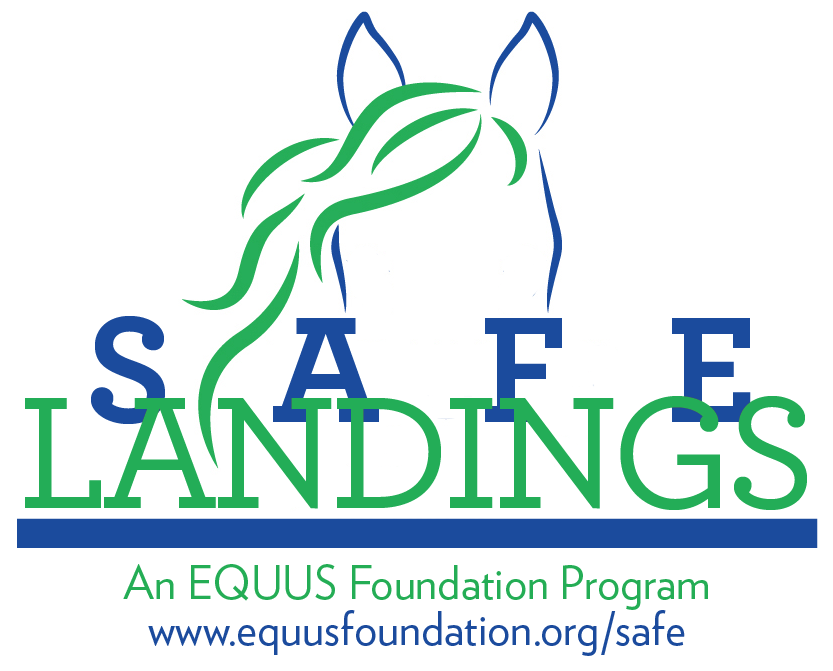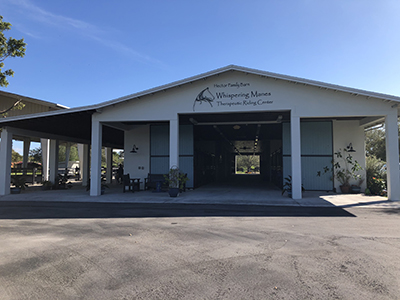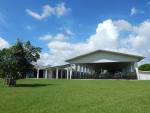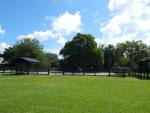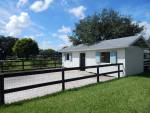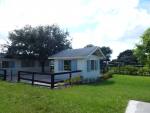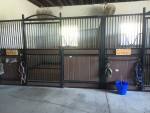Are we the next chapter for your horse?
Whispering Manes Therapeutic Riding Center
MIAMI, FL
Seeking horse for therapeutic riding program
We are seeking a Horse that meets the following criteria:
Age Range:
Aged 6-9 Aged 10-14
Gender:
Geldings Mares
Size Preference:
Large Pony (13.3 to 14.2h) Small Horse (14.3 to 15.3h)
Temperament:
We are looking for a horse with a calm temperament. Not at all spooky and tolerant of different riders and handlers
Activities that the equine will be expected to perform:
English Walk Only
English Walk/Trot
English Walk/Trot/Canter
Horsemanship (grooming, tacking up & handling by individuals with disabilities)
Unmounted activities including handling when at liberty in a round pen or arena
Being lunged with a rider
Current/former experience/training which could make the equine suitable for your program:
English Pleasure
Parade Horse
Western Pleasure
The organization has the following policies about horses who are sound and healthy but have the following chronic conditions that require medication:
Lyme Disease: Accept with financial assistance for medication
Cushing's Disease: Accept with financial assistance for medication
Thyroid Disease: Accept with financial assistance for medication
Navicular Disease: Not Accept
Inflammation: Accept subject to severity of condition
Location: The equine will be located at Whispering Manes Therapeutic Riding Center, 6105 SW 125th Avenue, MIAMI, FL 33183
Click on photo to view larger image
Close X
Total acreage dedicated specifically to the horses: 5
The organization has use of the following at this facility:
Structures/Barns: 1 Run-in sheds: 2
Pastures: 1 Paddocks/Pens/Turnout Areas: 8
Uncovered Outdoor Rings: 1 Covered Outdoor Rings: 1
Indoor Rings: 0
Horses have assigned stalls in the structure(s).
Horses are stalled for 1-3; hours per day, on average.
Horse Turn Out Practices:
Equines are out 24/7 except they are brought in if there is inclement weather
The following describes the pastures at this facility:
All pastures are fenced to prevent escape or injury
Fencing checks, such as broken or missing planks, loose fence posts, exposed or loose nails, detached wires, etc., are done regularly
Pastures have natural protection for equines (i.e., trees)
Pastures have man-made protection for equines (i.e., shelters)
The following describes the turnout areas other than pastures at this facility:
A dedicated staff person(s) is responsible for the maintenance of turnout areas
All turnout areas are fenced to prevent escape or injury
Turnout areas have man-made protection for equines (i.e., shelters)
Fencing checks, such as broken or missing planks, loose fence posts, exposed or loose nails, detached wires, etc., are done regularly
Horses have access to clean drinking water at all times
Hoof care is provided for each horse: Every 4-8 weeks and when an issue arises
Dental care is provided for each horse: Annually and when an issue arises
Each horse is visually and physically checked by personnel at the facility: Every day or 6 days a week
Close X
The organization requires the following with respect to the health status of the equine prior to acceptance and arrival at the organization:
A current Coggins
Vaccination records that have been administered within the last 12 months
If health records are not available or are out-of-date, the owner is responsible for having vaccinations administered.
If health records are not available or are out-of-date, our veterinarian will administer appropriate vaccinations
The organization has the following policies in place prior to an equine being accepted and/or arriving at the facility:
The owner of a potential equine is interviewed over the phone or in person prior to seeing the equine
The equine is evaluated at its place of residence
The owner completes an application/contract which constitutes the agreement between the owner and our organization
Equines are on trial up to 60 days
The trial period may be reduced based on the equine's progress
During the trial period, the organization accepts total financial responsibility for the care of the equine, including board, feed, shoeing and any necessary veterinary care
The trial period may be terminated by either the organization or the owner for any reason
The organization assesses equines for following skills and behaviors:
Retrieval from a pasture/paddock
Leading with a halter and lead rope
Temperament, disposition and attitude, such as rated from very calm to very high spirited
Saddling
Bridling
Lunging
Mounting and dismounting
Riding at the walk
Riding at the trot
Riding at the canter
Riding by a beginner and/or unbalanced rider
Tolerance to unusual objects and loud noises
Known vices, i.e., cribbing, biting, kicking, weaving, stall walking, etc
Grooming
Bathing
Clipping
Tolerance to multiple handlers at the same time
Following arrival at the facility, the following is performed:
Physical examination by a veterinarian upon arrival
Physical examination by trained barn staff
A Henneke Body Conditioning Score or other body conditioning score is assigned
Physical examination by a farrier
Fecal test
De-worming
The equine is confined to a designated and separate area for isolation and quarantine at the facility for a prescribed period of time
Our organization has the following policies and procedures in place pertaining to the ongoing assessment of horses in its care:
The Henneke Body Condition score or other body conditioning score is updated at least annually
Equines at our facility may be treated by an equine chiropractor
Equines at our facility may be treated by an equine acupuncturist
Equines at our facility may be treated by an equine massage therapist
Horses provided formal training (groundwork or riding):
As needed; no set schedule
Our organization has the following policies and procedures in place pertaining to the weight-carrying or workload capabilities of horses/equines that are ridden in our care:
Our organization evaluates at least annually and maintains a written record of the weight-carrying and workload limitations for each equine that is ridden
The following variables are considered in determining the weight-carrying and workload limitations for each equine that is ridden:
Equine age, weight, breed, body condition, fitness, balance, health and soundness
Equine conformation to include the top line, length of back, strength and width of loin, bone density (measured by the circumference of the cannon bone just below the knee)
Participant weight, height, body proportions, balance, fitness and riding skills as well as behavioral issues and safety concerns
Weight and proper fit of the saddle and other equipment
Terrain and footing in the working environment
Duration and frequency of working sessions, as the frequency with which an equine is subjected to maximum weight carrying and/or workload
Nature and pace of work, repetitive or varied, radius of turns, degree of incline and regularity of footing when equine is subject to maximum weight-carrying capacity
Temperature and/or weather conditions
Seasonal impact on the equines' workload and weight-carrying capabilities and limitations
Additional information about intake, assessment & training policies and practices:
We only offer equine assisted services. We do not offer rescue or rehabilitation. Horses joining our herd must be fit and in good body condition. We have a small herd of horses, and we keep careful track of changes in their behavior and eating. We note changes to the individual horses on a daily basis.
The organization has the following policies related to breeding and stallions:
Our main facility where our organization conducts its programs does NOT breed equines.
Close X
Rehoming
Our organization has the following re-homing (adoption/purchase) policies and procedures in place:
All potential adopters/purchasers complete a written contract which constitutes the agreement between our organization and the new owner
Our organization will only re-home an equine to a location where another equine resides
Potential adopters/purchasers must visit our organization and be observed with the equine on site
Adopters/purchasers are NOT required to provide updates
The agreement reflects that any individual or organization in possession of the equine as of the date of the agreement and any time thereafter is bound to not sell the equine at auction for slaughter or allow the equine to be sold, transferred, released, or otherwise placed into possession of any person or organization that will cause or allow the equine to be sold at auction for slaughter.
The agreement states that should the adopter decide to re-home the equine, our organization must be notified of the name, address, and telephone number of any individual or organization intending to take possession of the equine for any reason prior to the equine being placed into the possession of such individual or organization.
The agreement states that the terms of our organization's agreement will be binding on any future individual or organization taking and/or in possession of the equine for any reason.
The agreement states that re-homed equines cannot be bred
The agreement states that adopters/purchasers can return an equine to our organization free of charge
The organization requires references from the following:
Personal/Other
Transfer of ownership occurs:
Immediately (at the time of adoption/purchase) or less than one year
has the following policies and procedures related to horses that need to be retired, are no longer able to contribute to the mission of the organization, and/or are no longer manageable:
Equines may be found suitable homes by our organization
Equines may be returned to their owners
In the case an equine is unmanageable and demonstrates repeated dangerous behaviors, the equine may be euthanized upon the recommendation of the veterinarian
In the case an equine is unsound and/or unhealthy and cannot be treated to relieve suffering, the equine may be euthanized upon the recommendation of the veterinarian
Additional information about rehoming policies and practices:
Updates are not a formal part of our agreement, but we re-home so few horses and they only go to people with whom the organization has a relationship, so updates are shared freely. No horse will ever leave the program to be re-homed with someone that does not have a relationship with the organization. We have re-homed only three horses - two went to volunteers who we are in contact with and one went to a previous staff member.
View Re-homing Agreement
Close X
The organization has the following policies and procedures related to horses that need to be retired, are no longer able to contribute to the mission of the organization, and/or are no longer manageable:
Equines may be found suitable homes by our organization
Equines may be returned to their owners
In the case an equine is unmanageable and demonstrates repeated dangerous behaviors, the equine may be euthanized upon the recommendation of the veterinarian
In the case an equine is unsound and/or unhealthy and cannot be treated to relieve suffering, the equine may be euthanized upon the recommendation of the veterinarian
The organization has the following policies related to euthanasia:
Our organization will never have an equine euthanized for space
Our organization will have an equine euthanized upon the recommendation of the veterinarian if the equine is a threat to itself, other equines, or people
Our organization will have an equine euthanized upon the recommendation of the veterinarian after all reasonable treatment options have been explored
Euthanasia is done on site when possible to decrease trauma from transport
Disposal of the carcass is handled within 24 hours
The following are authorized to administer the procedure for the organization in accordance with state laws:
Veterinarian
Close X
Whispering Manes Therapeutic Riding Center
6105 SW 125th Avenue
MIAMI FL 33183
305-596-4204
Last Updated 2023-07-14
Public Charity
Mission/How we are involved with horses:
To benefit children and adults with special needs or disabilities by offering them the opportunity to interact with dedicated horses in a manner that promotes physical, mental, and emotional wellbeing. We believe people can develop therapeutic relationships with horses in a way that encourages healing and improved self-esteem.
Primary Focus involving horses
(Horse Welfare, Public Service, Sport & Recreation):
Public Service
The organization is directly responsible for the care and shelter of equines involved in the organization's programs.
The organization conducts Equine Assisted Services (EAS) in accordance with the EQUUS Foundation Guidelines on Qualifications of Organizations Conducting Equine-Assisted Services (EAS)). The organization provides community outreach and/or public education programs involving horses.
100% of our total programs and services are equine-related.
The organization conducts its horse-related programs at one facility.
|
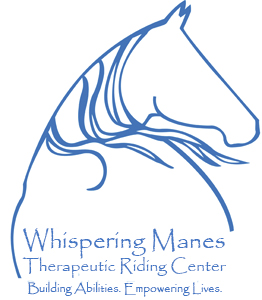
EIN: 27-3697303
Founded: 2010

2023
|
View our WEBSITE
View our GUIDESTAR PROFILE
View our EQUINE WELFARE NETWORK PROFILE
View our PHOTO GALLERY
892/2602/404

